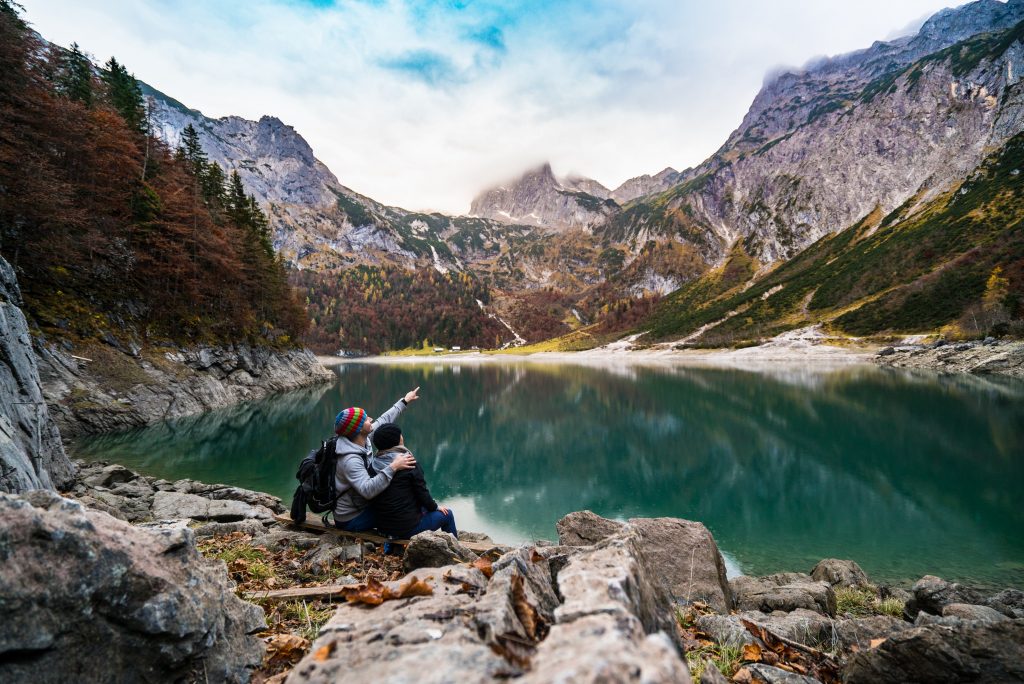The UN designated 2017 the International Year of Sustainable Tourism for Development. An opportunity to raise global awareness about how responsible tourism can act as a vehicle for positive change.
There are three main pillars of sustainable tourism. 1. To employ environmentally friendly practices (reduce, reuse, recycle). 2. To protect cultural and natural heritage. 3. To provide real social and economic benefits to a local community. For those that see the world as a place of endless discovery, it can be difficult for travellers to conceptualise how their passion might be ruining one of the things that they love most. Now more than ever, it’s important for people to realise that there are a number of things that they can do to ease their impact on the planet, while continuing to explore the world.
Trains, not planes
As we all know Greta Thunberg sailed across the Atlantic to attend a climate conference in New York, drawing attention to aviation emissions and fuelling the ‘flight-shaming’ movement. While it’s quite unlikely that everyone becomes as dedicated as Greta, it’s easy enough to get into the habit of looking at trains before flights. We are beyond the point of trying to raise awareness about climate change. Now it seems to be about convincing world leaders to enforce laws and regulations on CO2 emissions – something that many environmentalists have been talking about for years (see keynote speaker Gabrielle Walker).
Prioritisation is key. ‘Slow travel’ has emerged as a popular trend within the travelling community. This means going to fewer places and spending more time in each, as opposed to city hopping. Train travel is a good way of controlling the duration of each stay and reducing your carbon footprint.
Avoid plastic
The Great Pacific Garbage Patch is an accumulation of human trash floating across thousands of miles in the ocean. It will take hundreds of years (if not more) to degrade, all the while disturbing and tarnishing marine ecosystems.
It might seem obvious to say, but bottled water can become an issue when travelling. When tap water isn’t an option, try and look for locally purified water in recyclable glass bottles. It’s easy to fall into the habit of drinking from plastic bottles and justify doing so because it’s a cultural norm, but there may be other means possible if you have the resources. Also, take a few cotton bags with you for when you’re walking through street markets and shops. Both of these simple habits will cut back on plastic waste and reduce your carbon footprint.
Be wary of tours
A lot of travellers enjoy the freedom and independence of exploring on their own. But every now and then it’s fun to do the lazy thing and splash out on a tour. Look for the ones that actively seek out to protect and support cultural heritage, local services and produce, and wildlife. As travellers become increasingly aware of these kinds of issues, touring companies will gradually pick up on the trends and become a little more aware themselves (even if it’s forced).
Cultural appropriation doesn’t only occur in the West. It’s important for travellers to be conscious about taking another culture’s traditions and removing their historical and cultural significance. The ‘exchange’ is almost never an actual exchange and more often perpetuates an imbalance of power. When deciding on a tour, look at the activities and question them.
Be careful which souvenirs you take home
There is a long history of commodifying rare and endangered wildlife – taking a species and turning it into a souvenir. Think twice before you buy these tempting little trinkets, because you could be supporting the trafficking of an endangered species.
It’s much better to support the local economy by purchasing locally made crafts and souvenirs. They are often more expensive, and you might have to go out of your way to find them, but it is so much better than buying something “traditional” that was actually made in China. As with tours, try to be aware of cultural appropriation.

